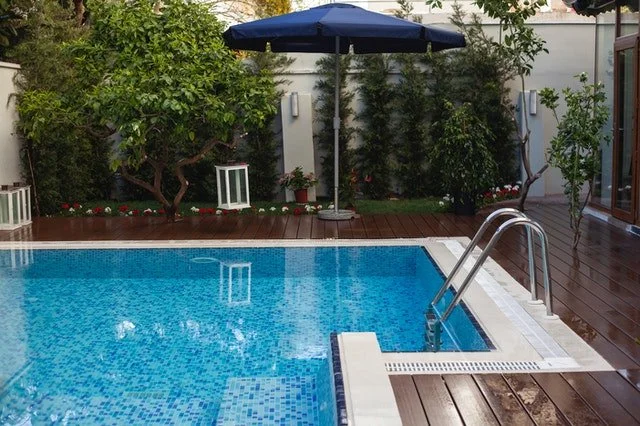Tips for Properly Maintaining and Cleaning Your Pool
RH Business Marketing Solutions
Pool maintenance is a struggle for many homeowners, especially those trying to juggle time between families and jobs. If you have a pool, though, it might be time to find the balance between work and play. Don't sweat the small stuff, and don't get discouraged by a few missed swimmers - instead, just keep on swimming! You'll be able to clean off your pool with ease once by following these tips for proper maintenance and cleaning.
Ensure Proper pH Balance
Check the pH balance of your pool water often. If it's too high or low, bring it back to normal by adding chemicals that can be purchased at any local supplier. If you have a saltwater pool, make sure it's balanced. Such water must be kept in check with a simple bi-weekly check of the pH balance and minerals. Keep the levels of your chlorine and ph maintained using test strips. A properly balanced pool will be chlorine at 0.5 parts per million, with a pH of 7.0 or above. To lower the levels of either of these chemicals, add either acid or alkaline liquids until you reach the desired level.
A quick and easy method for maintaining pH balance is the use of tablets. Just place 500 tablets in your pool, skimmer, and filter at the beginning of the season, and they will do the job by themselves. If you want to use more tablets or want to switch out different types of formulations, contact a pool store for assistance.
Weekly Cleaning
Your pool should be cleaned and maintained during each week. It can involve cleaning tile, vinyl and plaster, hose and cartridge changes, and a close check of the filter system. If your pool is not in use, you can invest in round tarps or any specific to your pool shape and size to keep it free from debris.
Empty Pool According To Set Timer
Use a timer on your skimmer to let you know when it needs to be emptied. Empty skimmer containers at least once a week. For the best results, keep a record of how often you empty your pool. It will help you determine when it is time for repairs or replacements.
Clean The Pool Pump
A pool pump should be cleaned when replacing or repairing. It is quick, easier, and more cost-effective to take the old pump out and leave the new one in as long as it is compatible. If you do this, make sure that you clean the filter.
Replace The Pool Liner If Cracked
If there are no cracks in your vinyl liner, check if any areas or cords are deformed. If so, replace these areas. If you are unsure, take pictures of the liner to send it to a vinyl dealer. A patch can be made, saving you both time and money in the long run. If a crack is found, it is best to replace the entire liner. Be sure to choose one of the major brands to ensure a quality product.
Regularly Clean Cartridge Filters
Cartridge filters should be taken out and cleaned regularly. If you have too many dirt particles in the filter, it will cause a clog and not perform properly. You will need to purchase a replacement filter every five years or so.
Replace Chemicals
When you dispose of chemicals, you should ensure that all chemical containers are properly labeled. You should also write down the name and the strength of each liquid and use this when replacing them.
Test Your Pool Weekly
A pool should be tested once or twice a week during the swimming season. It can be done by simply swishing the water with a plastic cup or testing the salt and chemical levels. When you test your pool, make sure you record the results for future reference. Have a routine for your pool that includes weekly cleaning, chemical treatments, and testing. It will help keep your pool at its peak for use each year. Your pool should be checked at least once per year. For instance, if you opted for a pool heater installation then mark it on your calendar to get it checked one year from now.
Conclusively, a pool is an investment for many people. It provides you with a great place to play and can serve as a substantial moneymaker. To keep your pool healthy and clean, follow the above tips, and you will notice the positive effects.
Guest Contributor: Tracie Johnson
